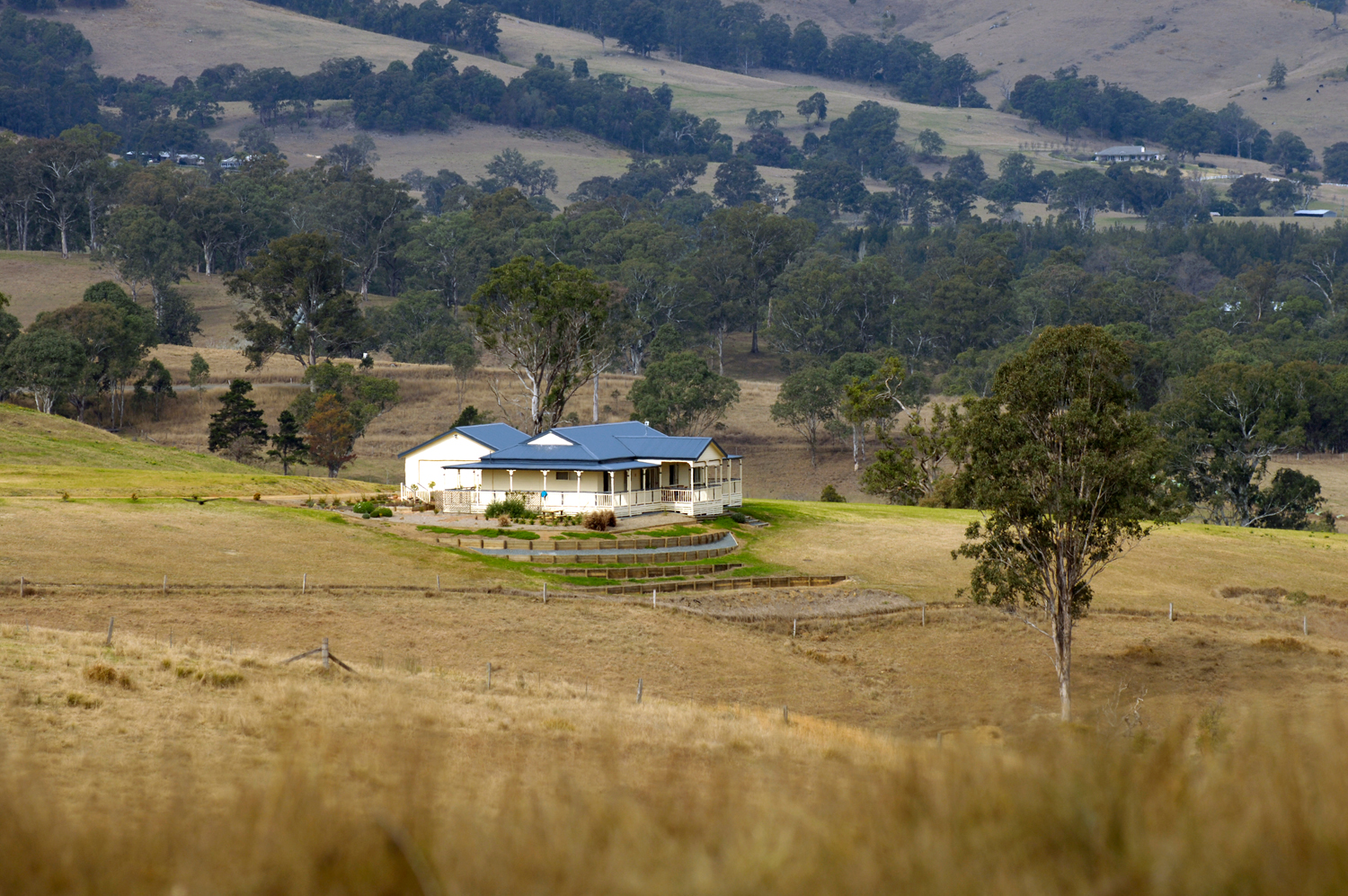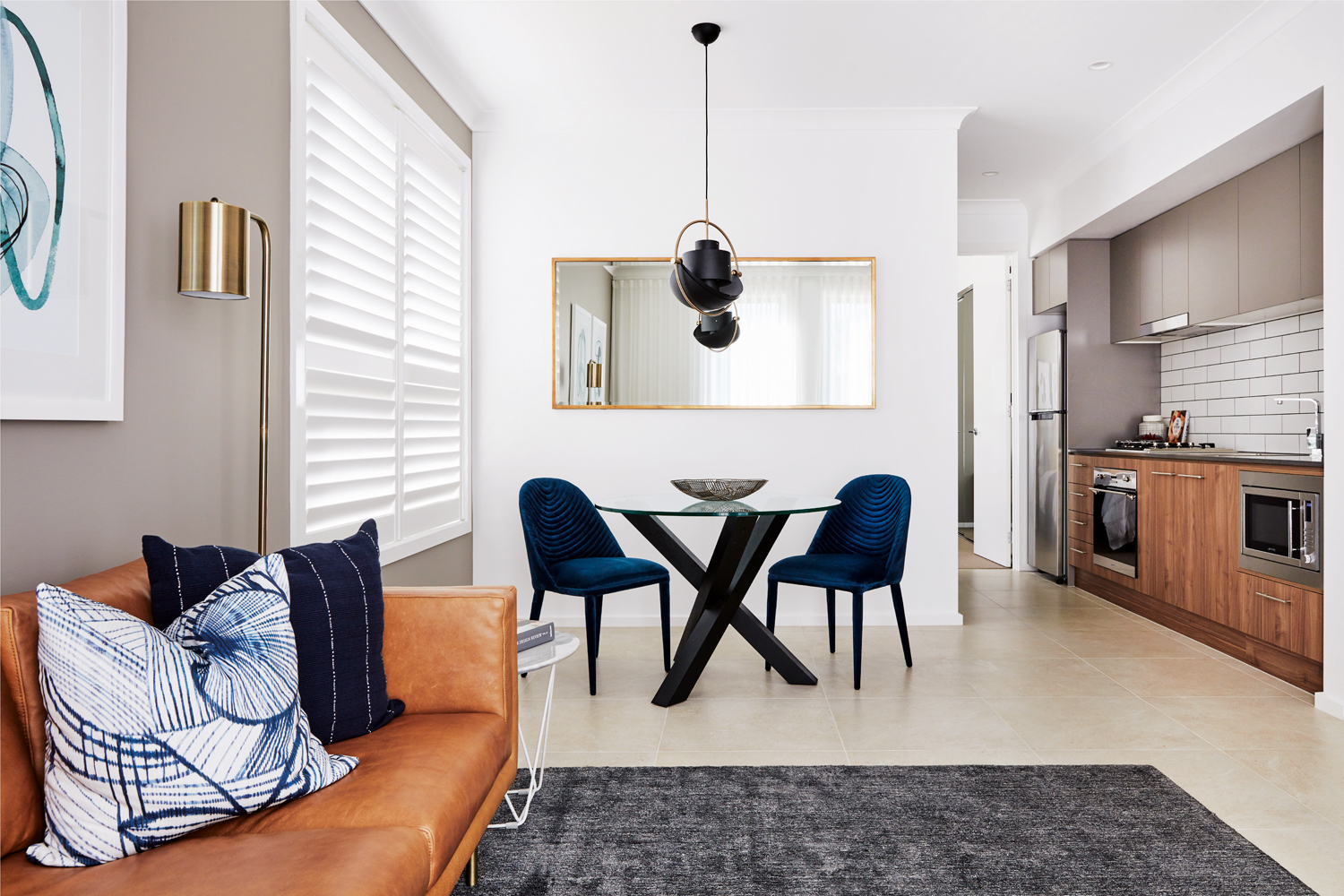There is so much to think about when building a new home. Use this list to check off important items to ensure the building process is a smooth one
What can you afford?
- Have you calculated your total budget, including legal fees, the cost of the land, land evaluation fees, rates and taxes, stamp duty, site works, landscaping and moving expenses?
- Do you qualify for finance and, if so, how much are you able to borrow? Find out if a bank, building society, mortgage broker or an independent financial adviser is the best option for you. The Australian Securities & Investments Commission website, www.fido.gov.au, is a great resource for people who need more information or advice about home loans.
- Have you allowed an extra 15 per cent to cover any unplanned additional expenses such as price increases or changes to your plans after building has commenced?
- Are you eligible for any financial assistance from the government to build your new home, such as the First Home Owner Grant Scheme (all states), the First Home Bonus (Vic), benefits for building in regional areas (Vic and Qld) or stamp duty concessions or exemptions, for example under the NSW Home Builders Bonus? To find out whether you can take advantage of these benefits, contact the relevant government body: Office of State Revenue (NSW and Qld) or the State Revenue Office Victoria (see contact details opposite).
Choosing the land
- Does the area you’ve chosen to build in meet the needs of your family? Find out about schools, transport, shops, parks, medical services etc. If you are building in a new residential development, find out whether these amenities will be available in the future.
- Have you checked with the Land Titles Office in your state to find out if the land has any encumbrances, easements or restrictive covenants, or whether there is likely to be any delay in subdivision approvals that might prevent the builder lodging plans with the local authority?
- Check with the local authority to see if there are any future subdivisions, road changes or special building conditions that apply.
- If it’s a strata-title block, have you checked with the local authority to see whether or not there are any special building requirements?
- Are you informed about the availability of gas, water, sewerage and electricity?
- Are you fully aware of the extent of site works needed, such as tree removal, levelling, retaining walls, removal of clay or rocks, extra drainage etc?
- Have you considered how the natural features of your block can be used to maximise your home’s thermal performance? For example, will the block allow for a north-facing home to aid passive heating and cooling?
- Is your block located in a high-bushfire-risk or flood-prone area? If so, certain building requirements may apply.
Getting ready to build
- Develop a simple filing system to keep track of the building process.
Think about what features are must-haves and what’s on your wish list. This will ensure your new home suits your needs, desires and lifestyle. - Visit a few display homes, kit homes and custom-designed homes to gauge the different options and to clarify special offers.
- Do your research before choosing a builder. Ask friends and family for recommendations, contact industry associations such as the Master Builders Association (MBA) or Housing Industry Association (HIA) for a list of reputable builders, or search trade directories. Be sure to ask for at least three quotes from different builders, see examples of their work, and try to speak with past clients.
- Check with your relevant state body to ensure your chosen builder is properly licensed: NSW Fair Trading, the Queensland Building and Construction Commission (QBCC) in Queensland or the Building Commission for those who live in Victoria (see contact details on opposite page).
- Are you happy with the type and dimensions of the materials used, such as the thickness of the wall slabs, type of brick on the inside walls, roof framing, roof tiles, wall plaster or finish? Ask an independent expert for an opinion.
- If buying a display home, have you checked that the model you are purchasing includes all the features you expect? Remember to check the contract and specifications.
- Do you fully understand what is — or is not — included in the price? Make sure you have everything in writing, including features such as driveways, fencing, hot water service, light fittings etc.
- If the plans were prepared to your instructions, ensure no copyright laws have been infringed by using any part of someone else’s designs. If in doubt, check with the Australian Copyright Council on (02) 8815 9777 or by visiting copyright.org.au.
- Have you considered appointing a building lawyer to help prevent any misunderstandings by making your contract clear before you sign?
Checking your plans
- Check all the plans and specifications thoroughly — make sure you fully understand the plans and all the symbols used. If plans are drawn up in advance of a building contract, check with your local authority that they will be approved without major amendments.
- If you have chosen a display home, take the plans along and check the features, measurements of rooms and furniture installed. Check that any changes or extras are included.
- Ensure all your selected materials and design changes are included in the drawings and/or specifications. Variations made after the contract is signed may incur a fee.
- Check that your plans comply with the Building Code of Australia’s six-star energy-efficiency standard.
Before you sign the contract
- Insist on using a recognised form of building contract, such as those published by the HIA or the MBA. The QBCC also offers a range of contracts, including the Major Works Contract — for residential work that’s more than $40,000 — which complies with Queensland’s Domestic Building Contracts Act 2000.
- Read, check and make sure you understand all contract documents thoroughly. You should strongly consider seeking legal advice from a solicitor who specialises in home building matters to review and help make your contract clear before you sign on the dotted line. They will also offer advice on any areas that require changes. Remember, implied warranties and other rights under the Home Building Act 1989 (NSW), Domestic Building Contracts Act 2000 (Qld) and the Domestic Building Contracts Act 1995 cannot be signed away.
- Have you received a valid certificate of home warranty insurance from your builder?
- Has the builder confirmed that they have obtained and reviewed the foundation data?
- Does the contract require the release of progress payments at various stages of construction and, if so, are the terms satisfactory to you and your finance provider?
- Do you intend to provide any materials for your home, such as a spa, kitchen equipment or light fittings and, if so, have you checked whether the builder’s insurance covers the loss or theft of these materials from the site or damage during installation?
- Have you checked the dates or time periods that the fixed-contract time is scheduled to start and finish? Establish what your rights and the builder’s rights are if the builder runs over the original contract construction time.
- Have you filled in the liquidated damages clause? Is the amount sufficient to cover your losses if the home is not finished on time? Take into account the cost of rent, storage and other out-of-pocket expenses.
- Ensure the contract documents are fully complete. There should be no blank spaces and the contract should include everything that has been discussed.
- Has your builder given you the required supporting documents and checklists? If you are building a new home in NSW, check that you have received a copy of NSW Fair Trading’s Consumer Building Guide and contract checklist. Queensland-based builders are required by law to provide their clients with a copy of a QBCC-approved Contract Information Statement, while Victorian residents must complete the Consumer Affairs Victoria-approved contract checklist. Do not sign the contract unless you answer “yes” to all of the questions in the checklist.
Once construction starts
- Have you been given the name and phone number of your contact person in the builder’s office?
- Have you organised to confirm all important agreements or comments in writing throughout the entire building period?
- Ensure you have received a claim from the builder for a progress payment — do not make payments in advance! Carefully check that the work is properly completed up to the appropriate stage or secure the services of an independent building consultant to do this for you.
- Purchase a diary to record all the day-to-day happenings, including any discussions with your builder.
- Has your builder advised you if the home has reached “practical completion”? Check every aspect to ensure you are satisfied and the home is habitable. You can then hand over the final payment. Remember, you have made a financial commitment to your builder to pay in accordance with the conditions of the contract before obtaining your house keys.
Moving in
- Arrange connection of the telephone (you can organise for cabling to be carried out during construction), gas and electricity.
- Advise the water board, local council and post office you have moved.
Notify the electoral office, bank, Medicare, your employer, insurance companies, schools and professional associations. - Make a note of any minor defects and arrange to provide a list to the builder.
Remember, the builder has a legal responsibility to ensure the work is carried out in a proper and professional manner. If necessary, there are government departments and bodies in each state and territory that can help consumers and builders resolve building disputes and also offer advice on how to prevent building disputes from arising. However, you should try to resolve any problems or disputes with your builder in the first instance.
For more information on:
Home loans:
MoneySmart
1300 300 630
moneysmart.gov.au
Government benefits for home-builders:
NSW Office of State Revenue
1300 130 624
(First-homeowner benefits)
1300 139 814
(Stamp duty enquiries)
osr.nsw.gov.au
Office of State Revenue Queensland
1300 300 734
osr.qld.gov.au
State Revenue Office Victoria
13 21 61
sro.vic.gov.au
Finding a builder
Housing Industry Association
1902 973 555
(Calls charged at $2.75 per minute)
tradebuild.com.au
Master Builders Australia
02 6202 8888
masterbuilders.com.au
Understanding your rights and general advice
NSW Fair Trading
13 32 20
fairtrading.nsw.gov.au
Queensland Building and Construction Commission
139 333
qbcc.qld.gov.au
Consumer Affairs Victoria
1300 558 181
consumer.vic.gov.au
Victorian Building Authority
1300 815 127
buildingcommission.com.au
Originally from Build Home magazine Volume 22 Issue 2






